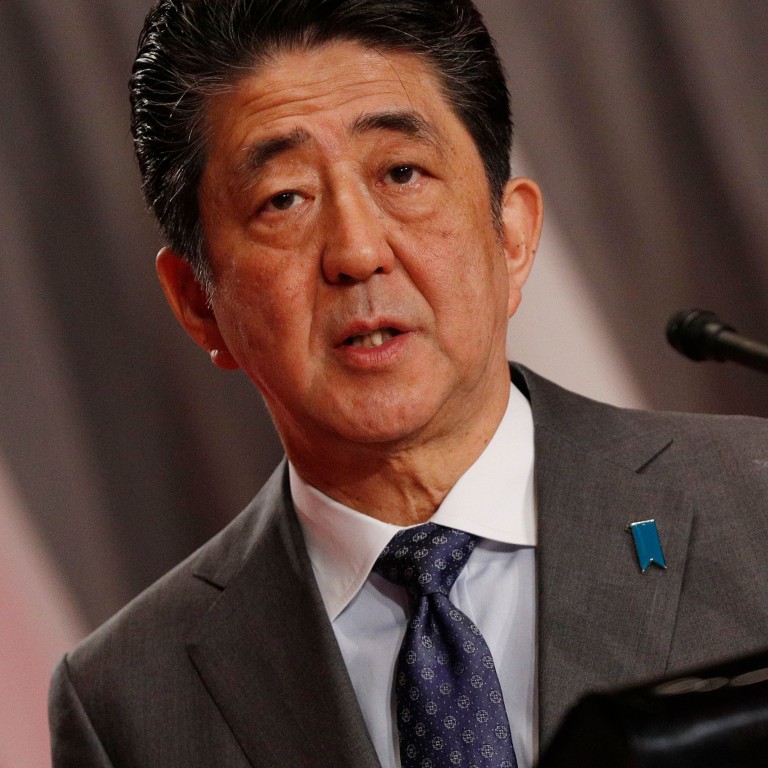
Japan seeks arbitration against South Korea over wartime forced labourers
- Relations between the two US allies have been increasingly strained after South Korea’s top court last year ordered a Japanese steelmaker to compensate wartime victims
On Monday, Japan said it now wants the issue referred to an arbitration panel, under the terms of an agreement signed by the two countries in 1965.
Who will lead Japan after Shinzo Abe? Washington visit offers new clues
“The Japanese government has communicated to the South Korean side that we will refer the matter to arbitration,” the foreign ministry said in a statement.
“The South Korean government has an obligation under the Agreement on the Settlement of Problems, and the Japanese government strongly demands South Korea accept arbitration,” it said.
Under the terms of the treaty, each country names one representative to the panel, and those two members jointly select an additional member from a third country.
The treaty was signed alongside a main agreement that normalised relations between the two countries in 1965.
Moon faces growing calls to investigate South Korean war crimes in Vietnam
South Korea’s foreign ministry said it would review the request.
“The government will prudently look into it, factoring in all related elements concerning the move by the Japanese side,” it said.
Japan and South Korea are both democracies, market economies and US allies, but their relationship has been strained for decades as a result of Tokyo’s brutal 1910-45 colonial rule over the Korean peninsula.
Japan argues that compensation issues related to the wartime labour policy were settled by the treaty that normalised relations, which included a reparations package of grants and cheap loans.
However, similar court rulings by South Korean courts have followed the top court decision last year.

.png?itok=arIb17P0)